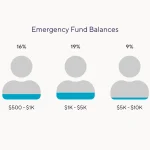
There are several kinds of investment accounts. People with shorter time horizons need their money in a certain point in time and should opt for safer investments, such as bonds. People with longer time horizons, on the other hand, can afford to take a higher risk and hold their investments for a longer period of time. Depending on the purpose of your account, you may choose to invest in stocks, bonds, or ETFs.
The fees of different investment accounts will vary. These fees may include management fees and transaction fees. Some financial firms charge you fees just for maintaining the account. Be sure to check with the Investment Industry Regulatory Organization of Canada (IIROC) to determine what you should pay. The fees are generally tax deductible. Investment accounts are also regulated by the Investment Industry Regulatory Organization of Canada. You should carefully consider the fees before signing up for any account.
Another type of investment account is a brokerage account, which allows you to invest in a broader range of assets than a 401(k) plan. These accounts are often free to open, but there may be a monthly account maintenance fee. You will also pay commissions to the broker for executing a trade. This is the most common type of account and is best suited for long-term goals. The brokerage account also offers a lot of flexibility in managing your investments. You can choose to work with a financial advisor, choose to invest manually, or choose an automated account with Schwab.
There are four types of investment accounts that young investors can open. Acorns is a perfect account for college students and young adults without the means to invest in stocks. There are no minimum balance requirements and overdraft fees. Moreover, the account’s mobile application makes it easy for anyone to invest their spare change in the account. If you have more experience in investing, you should opt for M1 Finance. This app helps you to build portfolio pies, which hold stocks and bonds that will earn capital appreciation over a long period of time.
To set up a new Government Investment Account, the Federal Program Agency must write a letter to the Fiscal Service and request a TAS (the Transaction Authorization Standard) to establish the account in the Central Accounting Reporting System. You must then consult the Federal Account Symbol and Titles, or TFM Volume I Part 2 chapter 1500, for more information. These documents can also be obtained from the Federal Account Service. If you are planning to open a new Government Investment Account, make sure you follow all of the guidelines and regulations in the TAS.
While traditional savings accounts offer minimal interest rates, brokerage accounts offer more flexible ways to invest money. Individuals can purchase and sell securities through a licensed broker. Individual brokerage accounts can be used for both saving for the future as well as for big purchases. While traditional savings accounts have their limitations, they are a great place to start building your personal investment portfolio. These investment accounts are available in the form of brokerage accounts and custodial investment accounts. The best investment account for you depends on your situation and personal goals.

